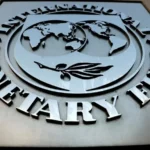Ethiopia and Kenya have reaffirmed their commitment to enhancing cross-border development and regional integration through improved infrastructure, trade facilitation, and socio-economic cooperation.
This agreement was announced in a Joint Communique following the Horn of Africa Gateway Development Project dialogue, organized under the Intergovernmental Authority on Development (IGAD).
A key outcome of the dialogue is the commitment to construct two critical bridges across the River Dawa at Rhamu and Suftu. These structures will not only enhance transport connectivity but also improve access to health care, education, and markets for nearby communities.
The two countries emphasized their shared goals of boosting infrastructure connectivity, advancing economic development, and fostering collaboration across their border regions. The initiative aligns with IGAD’s Vision 2050 and the African Continental Free Trade Area (AfCFTA).
- Advertisement -
Held in a spirit of mutual respect and partnership, the discussions marked a significant step toward inclusive development, regional peace, and deeper integration between the two neighboring nations.
Another central focus of the agreement is the revitalization of discussions on the River Dawa Basin Development Initiatives. Under IGAD’s coordination, both nations aim to mobilize resources and sustainably manage transboundary water systems for mutual benefit. These efforts are expected to contribute significantly to economic and social progress in border communities.
The leaders also highlighted the importance of peaceful cross-border engagement, pledging to resolve disputes diplomatically and promote joint solutions to infrastructure challenges affecting the Horn of Africa. Both governments recognized the transformative potential of coordinated regional projects in improving the flow of goods, people, and digital services across their shared boundary.
Furthermore, Ethiopia and Kenya agreed to operationalize One-Stop Border Posts at Rhamu and establish a Trade Facilitation Center at Suftu. These initiatives aim to reduce border delays, lower transportation costs, and improve the competitiveness of East African goods in global markets, in line with AfCFTA objectives.







